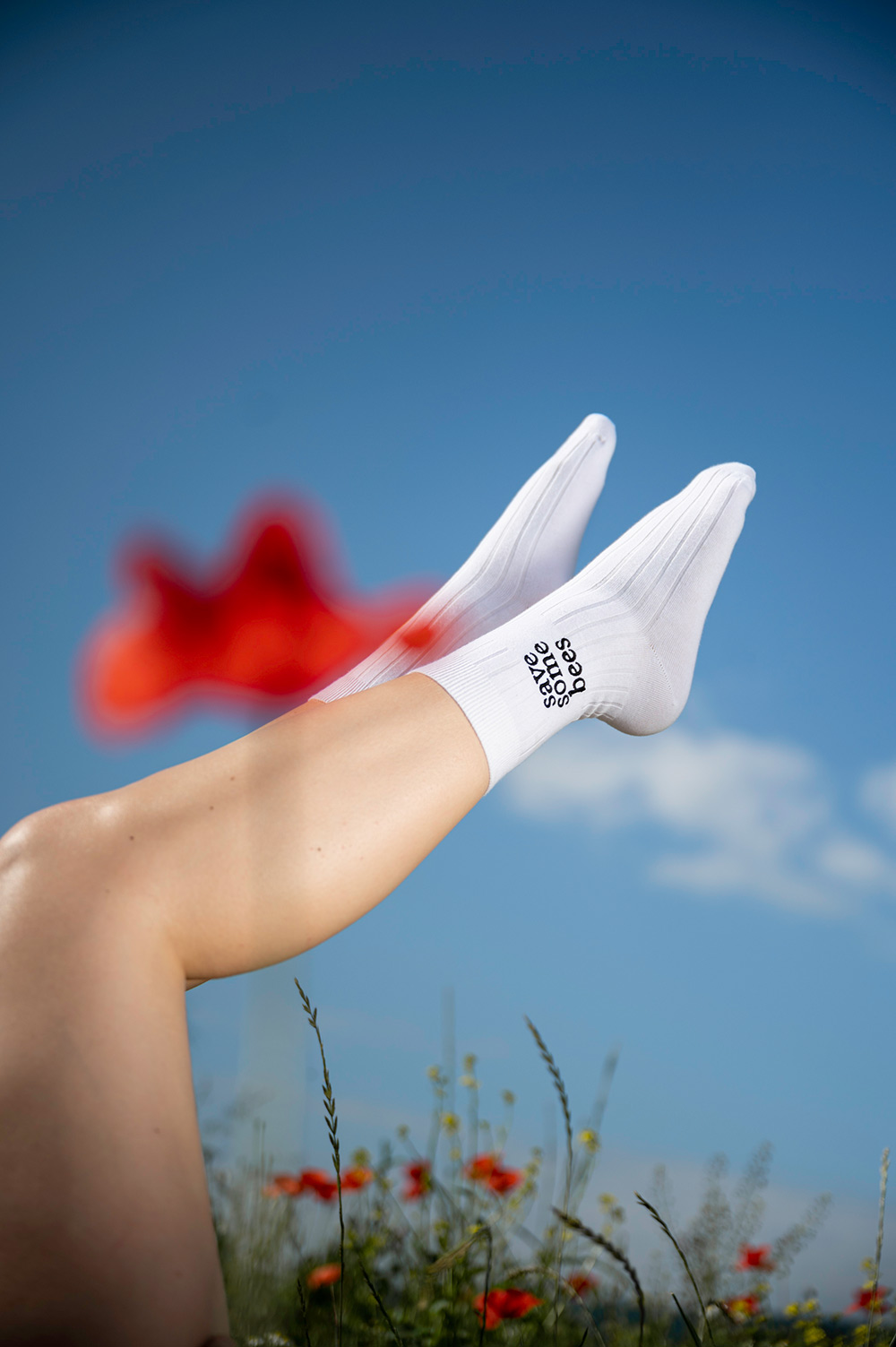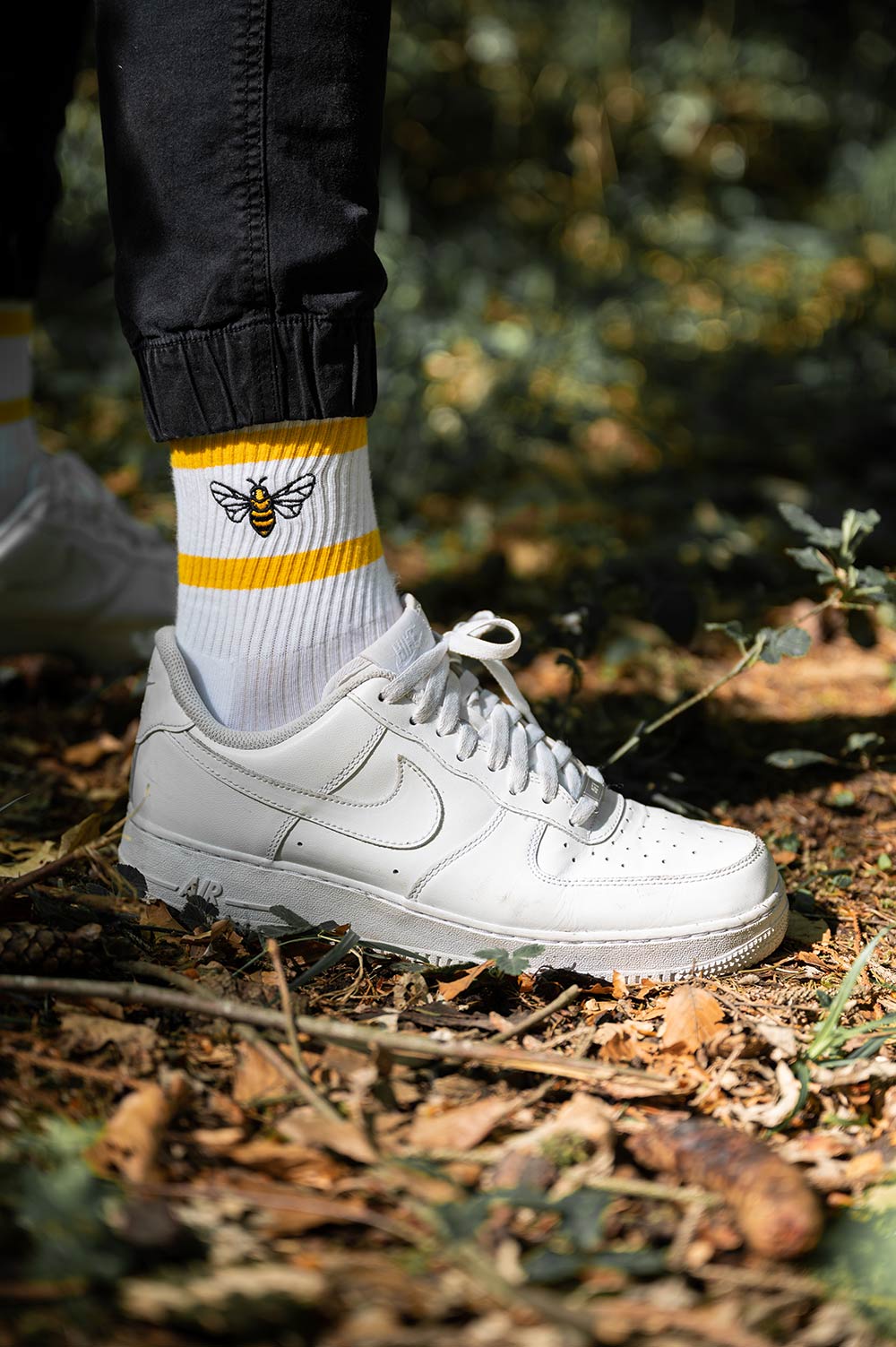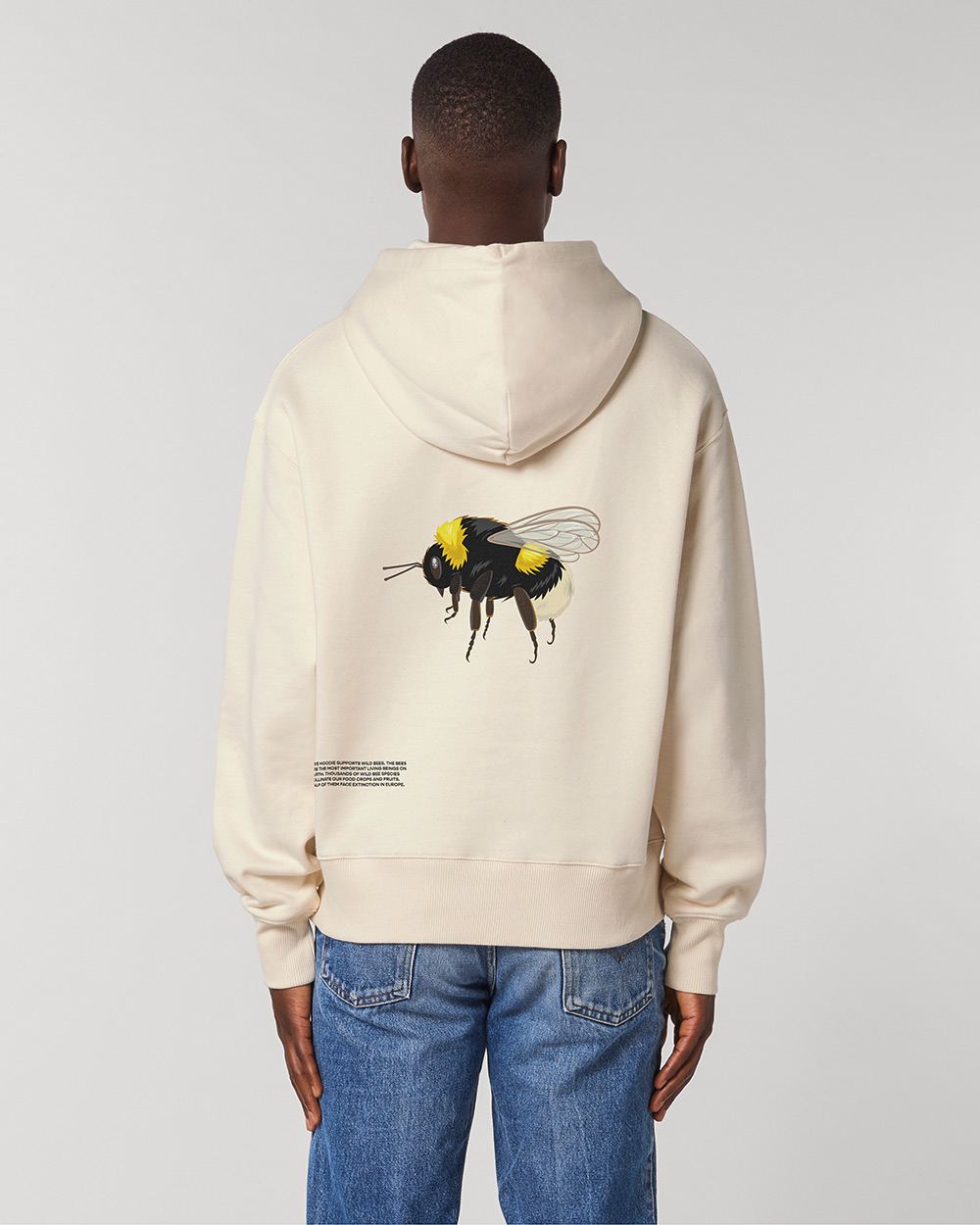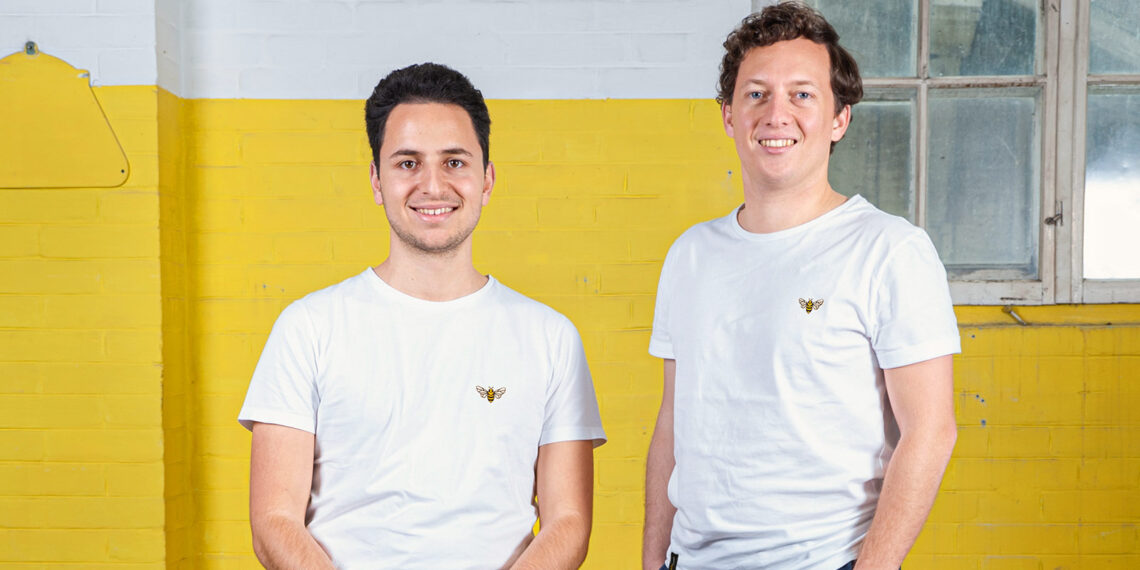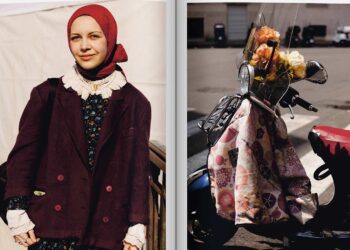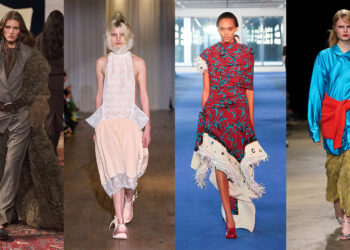Without the bee, the world comes to an end. To help the most important pollinator, Fabian Zbinden and Giacomo Travaglione founded the streetwear brand Beeyond. What begins as a bachelor’s thesis becomes a slow fashion brand with a good cause. Beeyond also recently won the Un-Dress Fashion Award and was recognized for its commitment to sustainability and transparency. Time to pay a visit to the bee rescuers.
FACES: Why is the bee so close to your hearts?
Fabian Zbinden & Giacomo Travaglione: The bee is the flagship of biodiversity. There are more than 20,000 species of wild bees and seven internationally recognized species of honeybees worldwide. The majority of plants are pollinated by wild and honey bees. Both are facing increasingly difficult challenges, the most catastrophic of which is the extinction of wild bee species, resulting in a direct loss of biodiversity.
The causes of wild bee mortality can be traced back to the use of pesticides, environmental pollution, habitat loss and other man-made factors. For this reason, we want to raise awareness of the challenges facing bees and fight directly against these problems by supporting the dissemination of knowledge and innovative research projects.
F: Explain briefly and concisely the importance of the bee for our ecological system.
FZ & GT: Bees produce honey? By no means only. Today, the industrious insect stands for much more than just a supplier of liquid gold. Its reputation as a tireless pollinator has been cemented in recent years. Thanks to films like “More Than Honey”, we know: The bee is a central link in the ecosystem. It is an important “farm animal” in agriculture and contributes to the preservation of biodiversity. Three quarters of our food and 84 percent of all flowering plants are pollinated by wild and honey bees.
But we also know that habitat loss, a lack of food supply, the use of chemicals such as pesticides, urbanization and industrial agriculture are among the main causes of bee mortality. Most of them are actually caused by humans. Today, 50 percent of all wild bee species living in Europe are threatened with extinction or endangered.
F: Five percent of the product sold goes to bee conservation projects. Which projects do you support?
FZ & GT: Through our savesomebees initiative, our customers donate five percent of the product price directly to local bee projects. Their aim is to preserve the biodiversity and habitats of wild and honey bees. Beeyond has currently joined forces with the non-profit association BienenSchweiz – the Swiss Beekeepers’ Association. Five percent of every purchase is donated to the newly launched “Bee Rescue Course” project, in which changemakers (people who make important decisions for our environment, such as architects or farmers) are educated about the needs of wild and honey bees and advised on methods for implementing bee-friendly solutions.
F: You want to create transparency with a QR code on your products. How does it work?
FZ & GT: Certificates are good. Transparency is better. We believe that you should know where your clothes come from. Our supply chain and ecological impact are fully disclosed on our website and can be individually accessed via a QR code on our products. With the QR code, our customers travel back in time step by step, find out where their clothes come from and discover their direct impact on the environment – from picking the cotton bud to weaving the fabric and shipping it home.
“Today, 50 percent of all wild bee species living in Europe are threatened with extinction or endangered.”
F: Where do you source your materials from?
FZ & GT: In general, we aim to source materials as close as possible to the production location of the respective items. The organic cotton for our T-shirts, for example, comes from the south of Turkey, while production takes place in Istanbul. The other half of the fibers consists of Tencel™ Lyocell and Modal. These are environmentally friendly fibers made from wood, which we obtain from natural forests and sustainably managed plantations in Austria and the Czech Republic from the company Lenzing. Our recycled polyamide is made in Italy from fibers that would otherwise end up in the trash. Instead, the discarded materials are reprocessed in a mechanical process without chemicals and then turned into a breathable and lightweight polyamide fiber.
F: Where do you produce your products and collections?
FZ & GT: We made a conscious decision not to produce outside Europe and to import the materials from the Far East. In this way, we are counteracting the fast fashion trend, also by using sustainable, local materials that conserve our resources. That is why our products are also manufactured in fair small businesses in Portugal, Poland and Turkey.
F: You advertise with the claim: Transparent. Sustainable. Fair. Can you explain the three keywords?
FZ & GT: Sustainable and innovative materials. Local and fair production in Europe. Radical transparency in our supply chain and support for bee projects. We act sustainably and fairly, even when no one is looking.
F: You also have a collection that is made entirely from recycled materials. Why don’t you use recycled materials for all your products?
FZ & GT: In general, you have to differentiate between recycled materials from non-textiles, such as marine plastic, and recycled textile fibers. Unfortunately, the reality today is that many clothes that end up in the recycling bin cannot ultimately be recycled at all. Mixed fabrics in particular complicate or even prevent recycling processes. We use recycled material where it is available. Either for polyamide fibers, which we have not yet been able to replace with natural fibers, or for our own products. Our first recycling collection was actually an upcycling collection. As we were unable to sell our sweaters due to a fabric defect, we had new products made from the same material in a social workplace in Switzerland: Gymbags, hipbags and small everyday bags. These were very well received by our community. As a brand, we want to become even more involved in the circular economy. We are therefore currently working with various partners on a solution to give our products a second life.
F: You focus on streetwear, producing socks, T-shirts and gym bags. Why did you start with these products, and can we expect other parts from you soon?
FZ & GT: Our aim is to make as many people as possible aware of the challenges facing our bees. For this reason, basic streetwear is particularly suitable for reaching a wide audience. Timeless designs are also the most sustainable, as they are worn the longest. Of course, we also have many other ideas planned for the future, such as the launch of a sports collection.
F: What were the biggest challenges in the beginning when you started Beeyond?
FZ & GT: It was difficult to find sustainable producers in Europe. There are many producers, but if you look for those with sustainable certificates, the field thins out. Then there was the problem with the materials. Many sustainable materials are not yet available in small quantities for start-ups at the beginning because they are only available subject to minimum order quantities. In addition, the origin of many raw materials such as organic cotton is not known or is not declared. There is still a lack of transparency throughout the entire supply chain in the textile industry. However, we want to change this by asking the uncomfortable questions and communicating our entire supply chain completely transparently on our website from the very beginning.
Another major challenge was raising consumer awareness. Although the slow fashion industry is enjoying an extreme upswing, the majority of people are still unaware of the dirty effects and social problems of the textile industry. At the same time, the general public has become accustomed to low fast-fashion prices. Our environment pays the missing price. It is a huge challenge for us to make our customers aware of this issue.
F: You have just won the Un-Dress Fashion Award. What does this victory mean for you and how does it help you?
FZ & GT: We are overwhelmed and very happy about winning the Un-Dress Fashion Award 2022! To feel that the challenges facing bees and the effects of the dirty fast fashion industry are being increasingly scrutinized is confirmation for us that we are pursuing the right mission with Beeyond. Thanks to the victory, we were given the opportunity to draw even more people’s attention to the importance of bees with our pop-up store at PkZ in May.
F: As part of the Un-Dress Fashion Awards, you also got to know other founders and sustainable brands. What do you take away from these?
FZ & GT: We competed against 23 great, sustainable brands that also deserved to win and are a role model for us in some respects. What we take away are two things: the courage to make bold designs and the perseverance to keep going, even if things don’t always run smoothly.
F: How has your approach to fashion and your thinking about clothes changed over the years?
FZ & GT: Our personal perception and therefore also our approach has of course changed enormously. As neither of us come from the textile industry, we were shocked by many practices that are considered “business as usual” and the extreme lack of transparency. This has also opened our eyes enormously to greenwashing. Fancy slogans are not the same as true sustainability. However, true sustainability is not always black or white either. Many factors such as longevity or coloring play a major role. Today, we also consume less and in a more personalized way. What do I really need? What do I wear over the years and across trends? What is the material mix? At the same time, however, we see fashion not only as necessary consumption, but also as an opportunity for change. We agree with the saying: “Fashion is a simple way of saying complicated things.” We don’t just want to reduce the impact of the dirty fashion industry, we want to use it as a tool for change. We go beyond sustainability and combine fashion with a good cause.
F: What’s the biggest mess in the fashion industry?
FZ & GT: Everyyear, the fast fashion industry is responsible for ten percent of all greenhouse gas emissions – more than shipping and flying combined. In most cases, people have no idea where the raw materials come from – and the companies themselves don’t know either. This lack of transparency is a big mess in the fashion industry. The biggest mess, however, is the brazen greenwashing that is unfortunately still practiced by many brands. As soon as the clothing contains one percent recycled plastic fibers, it is sold as sustainable and socially responsible – although the country of manufacture is often not even stated on the web store.
F: To what extent does the fashion industry also surprise you positively?
FZ & GT: There are many brands and producers who are doing their best every day to offer a true alternative to the dirty, mainstream part of the industry. However, we were positively surprised by the willingness to help, the demand for perfection and the understating of the storytelling. Many producers are understanding and offer helpful support for newcomers and career changers like us.
F: How do you define the term sustainability for yourselves?
FZ & GT: Ethical production. Natural materials. Radical transparency.
“Our environment pays the missing price.”
F: Can you understand why other labels find it so difficult to produce sustainably?
FZ & GT: Partly. We can understand that large labels pursuing a purely profit-oriented strategy cannot change their business overnight, as they are publicly traded companies and therefore subject to pressure from shareholders. This is a general problem in every industry. On the other hand, the business model of many big brands is based on volume. A large part of the collection is thrown away unsold every year, and the profit margins are still good. This cannot and must not happen, because it means that profit is being made at the expense of the environment and human rights. This is incomprehensible to me from an ethical point of view. Even if the big brands are still launching too many collections, I see no reason why they cannot, for example, pay higher wages to factory workers or take responsibility for fair and safe workplaces. I don’t know how these managers can sleep peacefully.
F: What are your three tips for being sustainable in terms of fashion and clothing?
FZ & GT: Our first tip, which we also live by ourselves, is to simply buy fewer clothes. You should buy the clothes that you know you will wear and that you really like. It’s the quality that counts, not the quantity. Our second tip is to pay attention to the greenwashing slogans of each brand and look at what exactly is in the fabrics and where the products come from. Thirdly, new and smaller brands should also be considered. They are usually more authentic and therefore more sustainable, and often do not skimp on quality.
F: What would you like to get better at?
FZ & GT: In the area of circular economy, so that we can give our products a second and third life. We also want to respond even more to our customers’ wishes and thus establish community co-creation and pre-orders.
F: What advice do you wish you had gotten when you started your label, and what advice do you pass on yourselves today?
FZ & GT: Everything takes longer than you think. Always plan a good buffer for the unforeseen – it makes planning easier. It’s a marathon, not a sprint. Our own advice is to focus on the solution and the story. Sell solutions not features. Perfectionism makes you slow, you can always improve step by step.
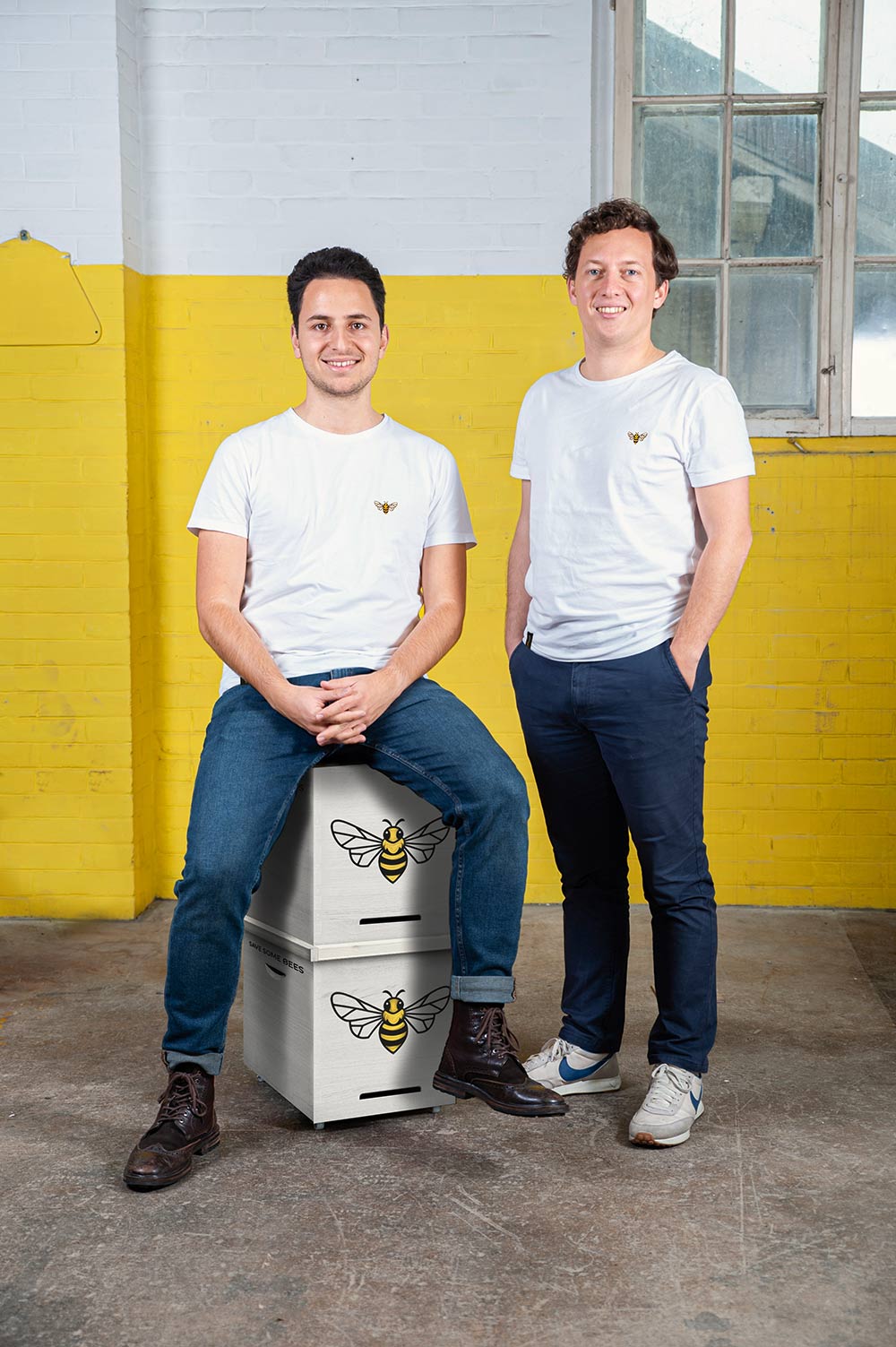
Right: Thanks to his Bachelor’s thesis, Fabian Zbinden finds the cornerstone of his future label.
Beeyond
A tedious bachelor thesis – or the foundation stone for a company. Fabian Zbinden started 2019 with the idea of founding a slow fashion brand to save the bee. The impetus comes from a project in which you can invest in sustainable beehives. Zbinden does so, reads up on the subject and is so shocked by the current extinction of wild bees that he decides to take action. Ideal: combining a simple, sustainable product with a good cause and using the bee as a symbol of sustainability and biodiversity. After its foundation, Giacomo Travaglione joins Beeyond and the journey begins. Today, the company, Swarm Movement GmbH, consists of three employees: CEO Fabian Zbinden is Beeyond’s creative all-rounder and takes care of everything from strategic planning to performance marketing, while Giacomo Travaglione, as Creative Director, implements all ideas visually and puts the branding on paper. The two are supported by Michelle, who is responsible for Order & Logistics Management, Accounting and Controlling.
Click here to go to the Beeyond website.
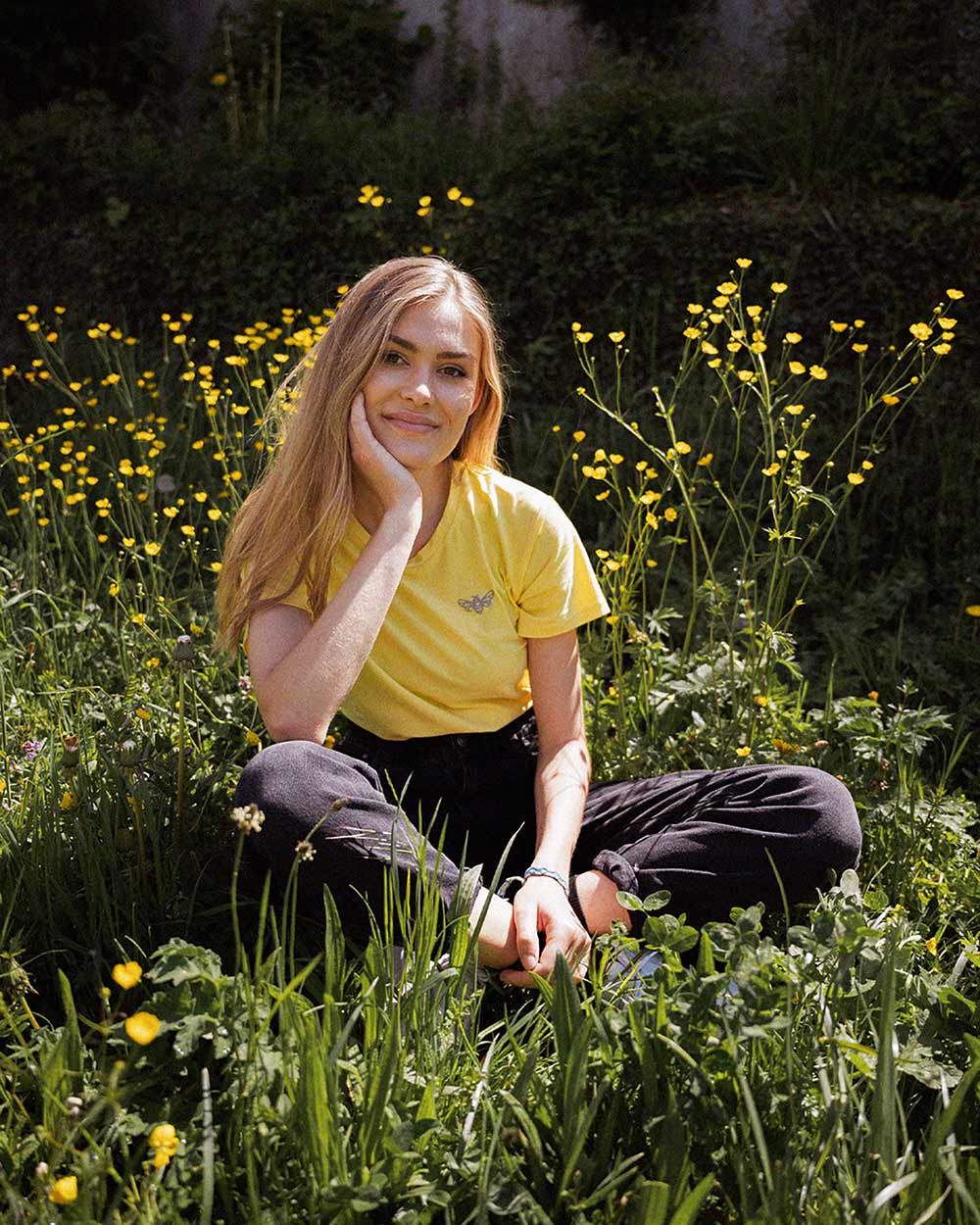
Sustainable shopping? The four tips from BeEyond:
1 Pay attention to longevity:
Will I appreciate these products for a long time and therefore wear them?
2 Consider the place of manufacture:
Is the place of manufacture known and which certificates are shown?
3 Prefer natural materials:
Is the fabric made from organic (organic cotton) or even innovative materials (Tencel, cork, corn)? Look for certificates such as GOTS and OEKOTEX 100.
4 Understand artificial materials:
Why were artificial fibers used – for lack of alternatives (for example, as an additive in socks or ski clothing) or for cost reasons (for example, in a T-shirt made of 100 percent polyester)? Is recycled plastic used, or are there vegan alternatives (for leather, for example)?
